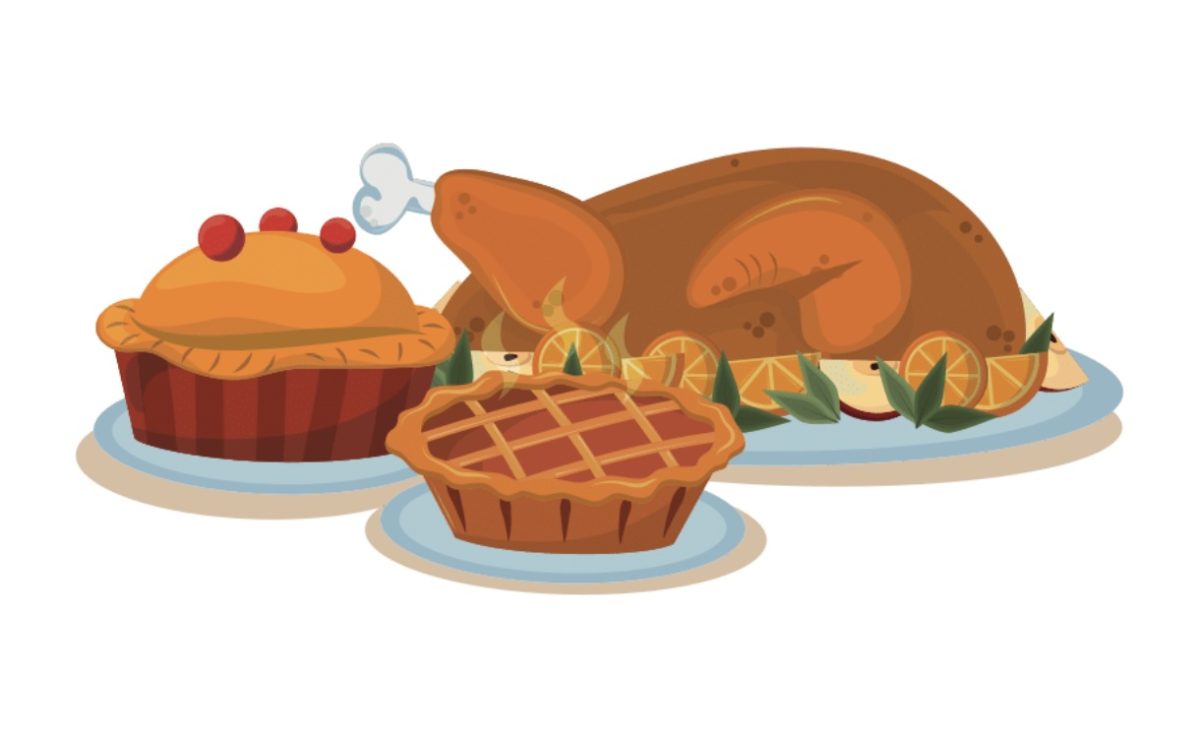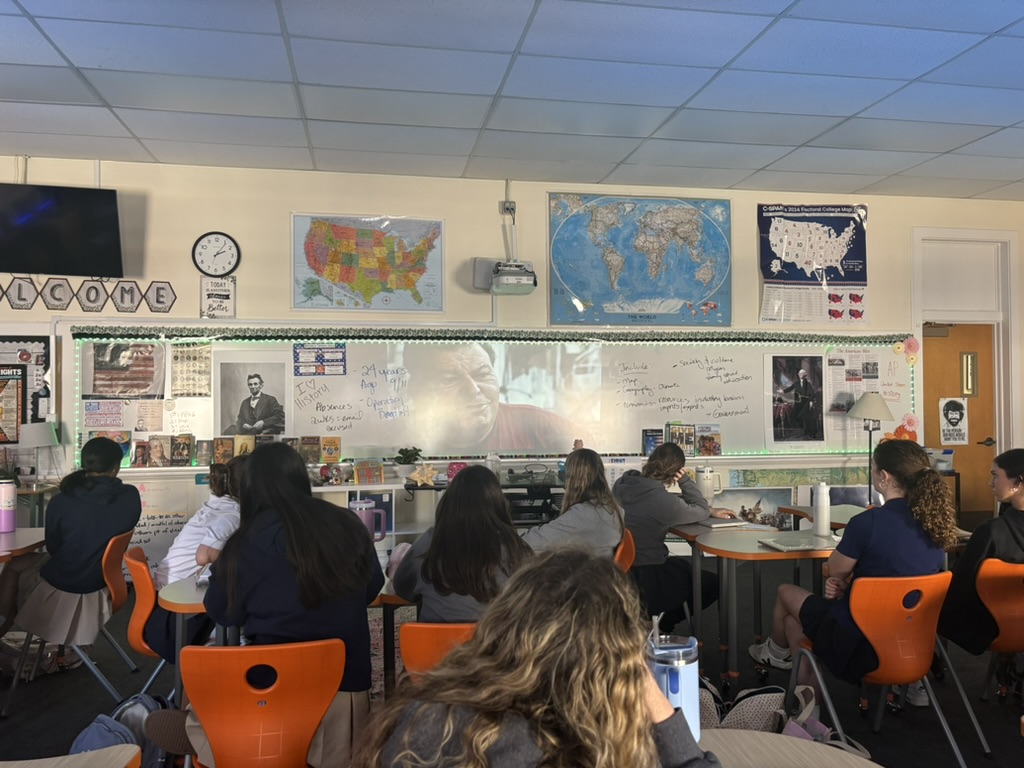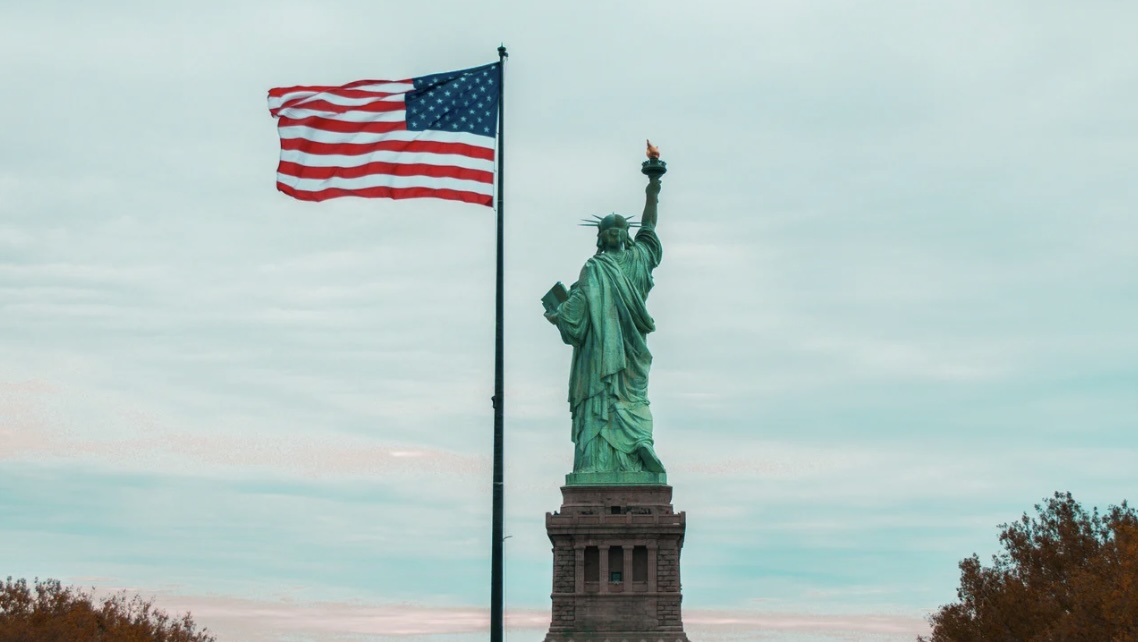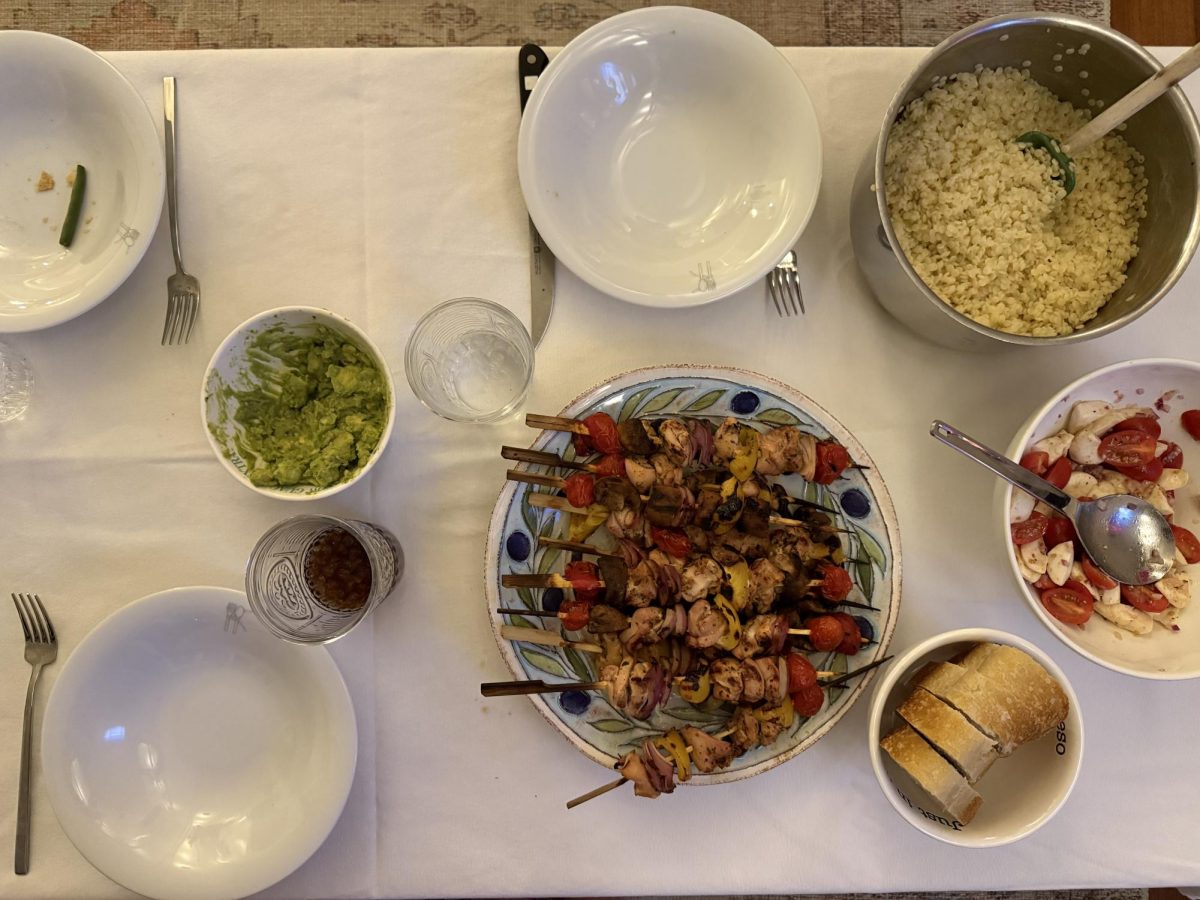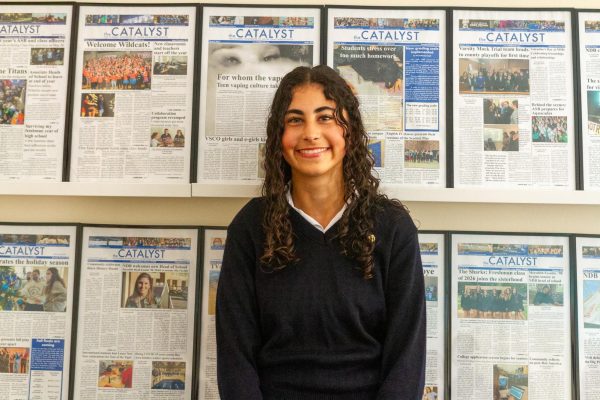With Thanksgiving around the corner, many students are starting to think about their holiday meals, and more and more are questioning whether we should keep the traditional Thanksgiving foods. The history behind Thanksgiving is complicated and can make people rethink the foods we associate with it.
Thanksgiving goes back to the early 1600s when settlers and Native Americans shared a harvest feast. But over time, the holiday has become linked to colonialism and the negative treatment of Indigenous cultures. Foods like turkey, stuffing and pumpkin pie are classic but might not reflect the reality of what Thanksgiving really means today. As attitudes change, people are reconsidering whether these traditions are still relevant, especially since a lot of students are not really fans of the usual Thanksgiving menu.
“My favorite Thanksgiving dish is turkey with cranberry sauce … the saltiness goes really good with the sweetness and it just tastes so good,” said sophomore Camilla Kan, who enjoys Thanksgiving food.
Kan acknowledges the history behind Thanksgiving and believes in recognizing it, but she sees Thanksgiving as an opportunity to create positive family memories. “I know Thanksgiving has a complicated past, but I think the traditional foods are about more than just history, ” Kan stated. “They’re about gathering with family, and that’s something I hope stays the same.”
On the other hand, Genevieve Land, a senior, expressed her dislike for traditional Thanksgiving foods.
“Turkey is overrated,” Land said. “It’s dry and bland most of the time, and I feel like we just eat it because it’s tradition … Honestly, when I think about Thanksgiving’s history, the food just doesn’t make sense to me anymore. Sticking to the same old meal seems outdated.”
Land believes that families could try new foods to represent a more inclusive celebration.
“I’d love to see more cultural dishes. Why not have foods that represent all the backgrounds we come from? For me, I’d rather have a meal with flavors that reflect today’s diversity than just repeat the same meal every year,” suggested Land.
Personally, while I do believe that Thanksgiving should continually reflect togetherness as Kan pointed out, Thanksgiving food must change if we want the holiday to stay meaningful and relevant. The traditional foods are outdated and symbolize a version of Thanksgiving that ignores the holiday’s difficult history. I believe that it is time to create a menu that actually reflects modern values and inclusivity. Our society is far more diverse and aware of its past than when Thanksgiving menus were first created. If we want Thanksgiving to honor everyone, then the food we eat should represent the variety and richness of today’s cultures—not just one version of history that does not fully include Indigenous voices.
Overall, as students think about Thanksgiving food, it is important to consider what the holiday means and how traditions can evolve. Talking about what we eat and why can help create a more inclusive celebration.

